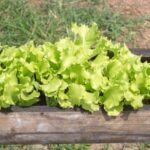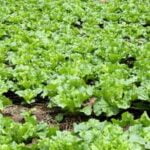Cypress mulch for vegetable gardens has become a popular choice among gardeners looking to improve the health and productivity of their crops. This natural and sustainable option offers a range of benefits, from weed suppression to moisture retention, making it an attractive option for gardeners of all skill levels.
In this article, we will explore the advantages of using cypress mulch in vegetable gardens, provide tips on soil preparation and application, discuss the types of vegetables that thrive with cypress mulch, and offer insights into sustainability and environmental impact.
When it comes to vegetable gardening, cypress mulch can be a game-changer. Its ability to regulate soil temperature and moisture levels can result in healthier plants and higher yields. Additionally, cypress mulch acts as a natural barrier against weeds, reducing the need for chemical herbicides while providing a clean and attractive appearance to your garden beds.
To reap the full benefits of cypress mulch in your vegetable garden, proper soil preparation is key. By implementing best practices for applying cypress mulch and selecting suitable vegetables that complement its properties, you can create an environment that promotes the growth and vitality of your crops. However, it’s important to avoid common mistakes when using cypress mulch to prevent negative effects on your garden’s overall health and sustainability.
The Benefits of Using Cypress Mulch in Vegetable Gardens
Cypress mulch is a popular choice for vegetable gardens due to its numerous benefits. From moisture retention to insect repellent properties, there are many advantages to using cypress mulch in your vegetable garden.
Moisture Retention and Weed Control
One of the main benefits of using cypress mulch in vegetable gardens is its ability to retain moisture in the soil. This can be especially beneficial during hot and dry seasons, as it reduces the need for frequent watering. Additionally, cypress mulch helps to suppress weed growth by blocking sunlight from reaching the soil, thereby preventing weed seeds from germinating.
Natural Pest Repellent
Another advantage of cypress mulch is its natural pest-repellent properties. The oils found in cypress trees act as a deterrent for insects such as termites, making it an ideal choice for protecting your vegetable garden from potential infestations.
Soil Insulation and Erosion Control
Cypress mulch also acts as a natural insulator for the soil, helping to regulate soil temperature and protect plant roots during extreme weather conditions. In addition, it effectively reduces erosion by forming a protective layer over the soil, preventing it from being washed away during heavy rainfall or irrigation.
In summary, the use of cypress mulch in vegetable gardens offers various benefits including moisture retention, weed control, pest repellent properties, soil insulation, and erosion control. With proper preparation and application techniques as well as careful selection of compatible vegetables, cypress mulch can greatly enhance the overall health and productivity of your vegetable garden.
How to Prepare the Soil for Cypress Mulch
Cypress Mulch is a popular choice for vegetable gardens due to its many benefits, including moisture retention, weed suppression, and soil temperature regulation. However, in order to maximize the effectiveness of cypress mulch in your vegetable garden, it is important to properly prepare the soil before applying the mulch.
One crucial step in preparing the soil for cypress mulch is to ensure that it is well-draining. This can be achieved by amending heavy clay soils with organic matter such as compost or aged manure. The addition of organic matter will improve the soil structure, allowing excess water to drain away while still retaining enough moisture for plant growth.
Another important aspect of soil preparation for cypress mulch is proper fertilization. Conduct a soil test to determine the nutrient levels in your garden and adjust them as needed. Generally, a balanced fertilizer with equal parts nitrogen, phosphorus, and potassium should be applied before laying down the cypress mulch.
It is also recommended to clear the area of any weeds or existing vegetation before applying cypress mulch. Using a hoe or hand-pulling weeds can help prevent them from growing through the mulch and competing with your vegetables for nutrients and water.
| Aspect | Description |
|---|---|
| Soil Drainage | Amend heavy clay soils with compost or aged manure to improve drainage. |
| Fertilization | Conduct a soil test and apply a balanced fertilizer before laying down cypress mulch. |
| Weed Removal | Clear the area of weeds or existing vegetation to prevent competition with vegetables. |
Best Practices for Applying Cypress Mulch in Vegetable Gardens
When it comes to using cypress mulch for vegetable gardens, there are some best practices to keep in mind. Proper application of the mulch can help maximize its benefits and ensure a healthy and bountiful garden. Here are some best practices for applying cypress mulch in vegetable gardens:
- Clear the area: Before applying cypress mulch, make sure to clear the soil of any weeds, rocks, or debris. This will create a clean and even surface for the mulch to be spread.
- Layer properly: It is important to apply the cypress mulch at the right depth. A layer that is around 2-3 inches thick is ideal for vegetable gardens. This will help with moisture retention and weed prevention without suffocating the soil.
- Avoid plant contact: When spreading the cypress mulch, be careful not to let it come into direct contact with the stems or leaves of your vegetable plants. Leave a small gap around each plant to prevent moisture-related issues such as rotting.
By following these best practices, you can ensure that your cypress mulch is applied effectively and efficiently in your vegetable garden.
It is also important to note that while cypress mulch offers numerous benefits for vegetable gardens, proper preparation of the soil is crucial for its effectiveness. Before applying the mulch, take some time to prepare the soil by:
- Testing pH levels: Use a pH testing kit to determine the acidity or alkalinity of your soil. This will help you understand if any amendments need to be made before applying cypress mulch.
- Aerating the soil: Using a pitchfork or garden fork, gently aerate the soil to improve its texture and allow better penetration of water and nutrients.
- Adding compost: Incorporating organic matter such as compost into the soil can enhance its fertility and provide essential nutrients for your vegetable plants.
By preparing your soil properly before applying cypress mulch, you can create an optimal growing environment for your vegetables and maximize the benefits of this natural material.
Types of Vegetables That Thrive With Cypress Mulch
When it comes to using cypress mulch for vegetable gardens, certain types of vegetables are particularly well-suited to thrive in this environment. The use of cypress mulch can provide numerous benefits for the growth and overall health of these vegetables. Whether you are a seasoned gardener or just starting out, understanding which vegetables work best with cypress mulch can help you make the most of your gardening efforts.
Here are some types of vegetables that thrive with cypress mulch:
- Tomatoes: Tomatoes benefit from the moisture retention properties of cypress mulch, helping to keep the soil consistently moist, which is ideal for their growth.
- Peppers: Peppers also do well with cypress mulch as it helps to control soil temperature, keeping it warm during cooler periods and cool during hot spells.
- Squash: Squash plants appreciate the weed-suppressing qualities of cypress mulch, keeping competing plants at bay while allowing them to flourish.
These are just a few examples of vegetables that can thrive when paired with cypress mulch. The unique properties of cypress mulch can provide an optimal environment for a variety of vegetable plants, leading to healthier and more abundant yields.
In addition to these vegetables, other crops such as cucumbers, eggplants, and okra can also benefit from the use of cypress mulch in vegetable gardens. Understanding the specific needs and growing conditions for each type of vegetable is essential for successful gardening with cypress mulch.
Common Mistakes to Avoid When Using Cypress Mulch
When using cypress mulch for vegetable gardens, there are several common mistakes that gardeners should avoid in order to maximize the benefits of this natural material. One of the most common mistakes is applying a thick layer of cypress mulch without properly preparing the soil underneath. This can lead to water and nutrients being unable to reach the roots of the plants, ultimately stunting their growth.
Another mistake to avoid is using cypress mulch that has not been properly aged or cured. Fresh cypress mulch contains high levels of tannins and other natural compounds that can be harmful to young plants. It is important to source well-aged cypress mulch from reputable suppliers in order to ensure its safety for use in vegetable gardens.
Additionally, one should avoid using cypress mulch as a sole source of nutrition for vegetables. While it does offer some benefits in terms of moisture retention and weed suppression, it is not a substitute for proper fertilization and soil amendment. Gardeners should continue to supplement with organic matter and fertilizer as needed, even when using cypress mulch.
| Common Mistakes | Impact |
|---|---|
| Applying a thick layer without soil preparation | Stunts plant growth by blocking water and nutrients |
| Using fresh, uncured cypress mulch | Inhibits plant growth due to high tannin levels |
| Relying solely on cypress mulch for nutrition | Plants may suffer from lack of proper nutrients |
Sustainability and Environmental Impact of Cypress Mulch
When considering the use of cypress mulch for vegetable gardens, it is important to take into account the sustainability and environmental impact of this material. Cypress trees are slow-growing, long-lived trees that are often harvested for their wood to produce mulch. This has raised concerns about the impact of cypress mulch production on natural habitats and wetland ecosystems.
Environmental Impact
The harvesting of cypress trees for mulch can have a detrimental effect on the delicate ecosystems where these trees grow. Wetlands provide vital habitat for numerous plant and animal species, and excessive harvesting of cypress trees can disrupt these ecosystems. It can lead to soil erosion, loss of biodiversity, and disruption of water flow patterns in wetland areas.
Sustainability
Due to growing concerns about the environmental impact of cypress mulch production, many conservation organizations and environmental groups advocate for sustainable forestry practices. Sustainable cypress mulch production entails harvesting methods that ensure the long-term health and viability of cypress tree populations. This may include regulations on harvesting quotas, reforestation efforts, and protection of sensitive wetland areas.
Alternative Options
For gardeners who are concerned about the sustainability and environmental impact of using cypress mulch in their vegetable gardens, there are alternative options to consider. Pine bark mulch, straw or hay, grass clippings, and compost are all environmentally friendly alternatives that can provide similar benefits to cypress mulch without contributing to the depletion of cypress tree populations. These materials also offer added benefits such as increased soil fertility and improved water retention.
Alternatives to Cypress Mulch for Vegetable Gardens
When it comes to choosing the best mulch for your vegetable garden, cypress mulch is a popular option due to its durability and pest-repelling properties. However, for those who are concerned about the sustainability and environmental impact of using cypress mulch, there are several alternatives to consider.
One alternative to cypress mulch is straw. Straw mulch is an excellent option for vegetable gardens as it helps retain moisture in the soil, suppresses weeds, and breaks down over time to add organic matter to the soil. Additionally, straw is typically more affordable than cypress mulch and can be easily sourced from local farms or gardening centers.
Another environmentally-friendly alternative to cypress mulch is wood chips from sustainable sources such as pine or cedar. These types of wood chips provide similar benefits to cypress mulch in terms of weed suppression and moisture retention, while also adding nutrients to the soil as they decompose. It’s important to ensure that the wood chips are sourced from sustainably-managed forests to minimize environmental impact.
For those looking for a natural and aesthetically pleasing alternative to cypress mulch, shredded leaves or grass clippings can be used as a free and readily available option. These materials break down quickly, adding valuable nutrients to the soil while also improving its structure. Using shredded leaves or grass clippings also promotes sustainability by reducing waste and minimizing the need for commercial mulches.
Ultimately, while cypress mulch has its benefits, there are numerous sustainable alternatives available for vegetable gardens. By considering these alternatives, gardeners can make environmentally conscious choices while still reaping the benefits of using mulch in their gardens.
Tips for Maintaining Cypress Mulch in Vegetable Gardens
Maintaining cypress mulch in vegetable gardens is crucial to ensure its effectiveness and longevity. Here are some tips for ensuring that your cypress mulch stays in top condition:
Firstly, it is important to regularly check the depth of the mulch. Over time, the mulch may break down or be displaced due to weather conditions or gardening activities. Maintaining a consistent depth of 2-3 inches of cypress mulch is ideal for retaining moisture, suppressing weeds, and regulating soil temperature.
In addition, it’s essential to replenish the cypress mulch as needed. As the mulch decomposes, it will need to be topped up to maintain its beneficial properties. This can typically be done once or twice a year, depending on the rate of decomposition and weather conditions in your area.
Furthermore, it’s crucial to keep an eye on any signs of mold or mildew developing on the cypress mulch. While cypress mulch has natural resistance to decay and pests, excessive moisture can lead to these issues. Ensuring good drainage and proper air circulation can help prevent mold growth on the mulch.
By following these maintenance tips, you can ensure that your cypress mulch continues to provide optimal benefits for your vegetable garden. Regularly monitoring and attending to the condition of the mulch will contribute to healthy plant growth and a thriving garden overall.
Conclusion
In conclusion, the use of cypress mulch for vegetable gardens comes with a range of benefits that can help improve the health and productivity of your plants. The natural properties of cypress mulch, such as its ability to regulate soil temperature and retain moisture, make it an ideal choice for gardeners looking to create a thriving and sustainable vegetable garden.
Additionally, the long-lasting nature of cypress mulch means that it can provide ongoing benefits to your garden for an extended period.
While there are certainly alternatives to cypress mulch for vegetable gardens, such as pine straw or hardwood mulch, many gardeners find that the unique qualities of cypress mulch make it worth considering. However, it’s important to carefully consider the environmental impact of using cypress mulch and explore sustainable sourcing options.
By making informed choices and taking steps to minimize any negative impact on natural ecosystems, gardeners can enjoy the benefits of cypress mulch while still being responsible stewards of the environment.
In light of these considerations, if you are looking to improve the health and yield of your vegetable garden while also minimizing maintenance requirements, using cypress mulch may be an excellent option to consider. By preparing your soil properly, applying the mulch correctly, and maintaining it throughout the growing season, you can create an optimal environment for your vegetables to thrive.
With careful attention to best practices and a commitment to sustainability, incorporating cypress mulch into your vegetable gardening routine can contribute to a successful and bountiful harvest.
Frequently Asked Questions
Is It OK to Use Cypress Mulch in Vegetable Garden?
Using cypress mulch in a vegetable garden is not the best idea. Cypress trees are slow-growing and using their mulch can contribute to deforestation. It’s better to opt for a more sustainable option.
What Is the Best Mulch for Vegetable Gardens?
The best mulch for vegetable gardens varies depending on the specific needs of the plants. Organic options like straw, grass clippings, or compost are popular choices as they add nutrients to the soil as they break down.
Does Cypress Mulch Affect Soil pH?
Cypress mulch can affect soil pH due to its natural properties, potentially making it more acidic as it decomposes. This may not be ideal for all vegetables, so it’s important to consider the pH requirements of your specific plants before using cypress mulch near them.

If you’re looking to get into vegetable gardening, or are just looking for some tips on how to make your current garden better, then you’ve come to the right place! My name is Ethel and I have been gardening for years. In this blog, I’m going to share with you some of my best tips on how to create a successful vegetable garden.





